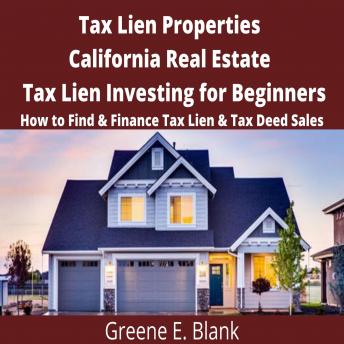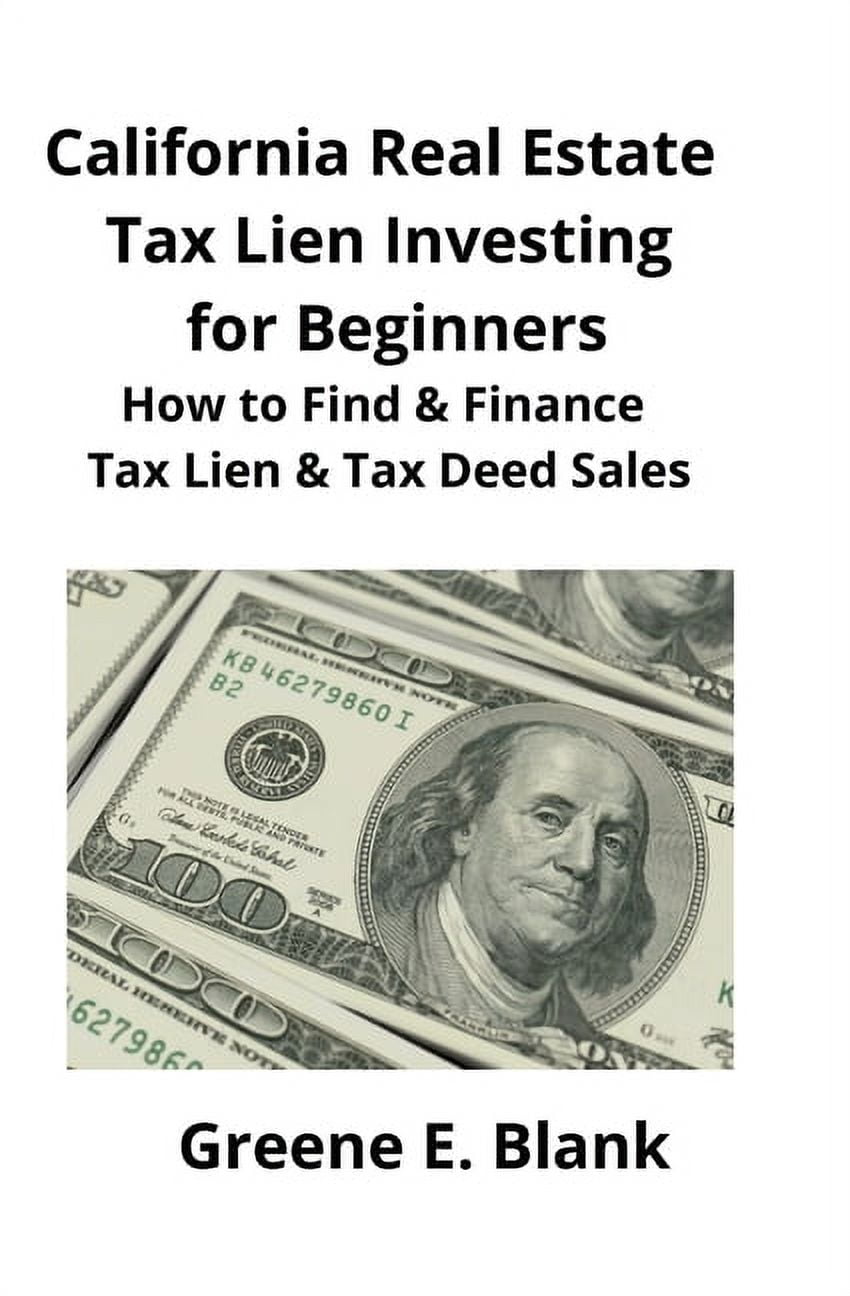All Categories
Featured
Table of Contents
It is necessary to keep in mind that not every state uses capitalists the chance to join a tax obligation lien sale. In some states, a residential or commercial property with delinquent tax obligations will certainly go right to the tax obligation sale process. In the states that do offer investor the possibility to buy tax obligation liens, around 33 percent of the $14 billion in unpaid tax obligations were liquidated (in 2017, as an instance).
If you want the tax obligation lien foreclosure procedure, you must get in touch with a lawyer so you understand and evaluate the dangers of this type of investment.
How Does Tax Lien Investing Work
Tax lien sales are one way that cities and areas attempt to recoup several of the general public dollars they've invested maintaining these residential or commercial properties deserted by personal proprietors. However, as we'll clarify in this write-up,. Once property tax obligations are thought about delinquent, city governments commonly concentrate on offering notification of misbehavior and trying to gather the overdue quantities from the proprietor.
However, this process usually takes years. If an owner has left and hesitates to pay taxes or maintain the home, the city must invest tax bucks to maintain the residential property. These costsboarding up the building, mowing overgrown lawn and weeds, reacting to fire and police gets in touch with the property, and moreadd up.
Proprietors that have actually fallen on tough times definitely need every initiative to maintain them out of misbehavior and in their homes. how to invest in tax liens. Yet normally, if the residential or commercial property is vacant and worn-out, we need to assume the proprietor has actually chosen to desert their rate of interest in the residential or commercial property and that they are "resistant" to pay (though conditions previously at the same time may have compelled their hand).

Take, for instance, a single-family home where the proprietor has long considering that strolled away. For several years the city government has actually had to tip in and remove garbage discarded in the lawn, board up the doors and home windows, and react to telephone calls about illicit activity on the residential property. All these solutions cost the city government taxpayer dollars.
In lots of states, those expenses can be accumulated in the same way as the overdue tax obligations, but not in all. In a tax obligation lien sale (or tax certificate sale) the local government usually holds a public auction where the winning bidder agrees to pay the most money for the right to apply the tax lien, starting with a minimum proposal of at least the taxes had, plus suitable interest, fees, and expenses.
When a federal government markets the tax obligation lien they are usually marketing to a private buyer the city government's authority to accumulate the debt in exchange for ahead of time payment of the taxes owed. The purchaser's purchase normally consists of the capability to make future passion, as well as recoup relevant charges and expenses incurred by the buyer, if the building proprietor pays the tax financial obligation.
Tax Liens And Deeds Investing
This is, in significance, privatization of a core government function: tax obligation collection. Tax lien sales are specifically poor when it comes to vacant, abandoned, and tatty homes since they lengthen the period prior to a residential or commercial property can be moved right into the hands of a brand-new, a lot more accountable owner. Personal tax lien purchasers hold the debt, yet they do not possess the titlethe legal right to possession of the propertyand in most cases, they have no interest in obtaining it.

Considering budget cuts, neighborhood federal governments in numerous states have lowered internal real estate tax collection and enforcement efforts and aimed to tax obligation lien sales as a fast mixture of profits. Lots of regions select or are mandated by the state to sell tax liens since it outsources collection and commonly generates very required cash money previously in the collection process.
By moving the city government's interest in and enforcement of the tax lien to an exclusive customer, regional federal governments shed a lot of their adaptability: flexibility to obtain uninhabited buildings that the exclusive market does not desire, or to assist the proprietor prevent losing their residential or commercial property. With vacant residential properties, there is a much greater chance that the exclusive purchaser isn't interested in the building itself.
Tax lien sales can trigger damage in historically disinvested areas (tax lien foreclosure process). In a depressed real estate market, less proprietors are able to redeem the quantity of the debt offered to a tax obligation lien buyer - how does investing in tax liens work. These locations are ripe for a different sort of tax lien investorspeculative proprietors seeking to acquire residential or commercial properties on the affordable by seizing on the real estate tax lien, bleeding what little equity is left by leasing an ineffective residential property to susceptible tenants, and afterwards abandoning the residential property when they've made back their investment

Not all state regulations provide city governments the power to interfere in this cycle. Regardless, the residential property stays vacant and in limbo, all the while imposing substantial costs on its next-door neighbors and taxpayers. It's understandable that many city governments transform to tax lien sales due to the fact that they aid fund vital civil services.
Tax Lien Investing For Beginners
If the city government rather offers the residential or commercial property (also known as the "tax act"), instead of the tax obligation debt, then they are in control of what occurs to the residential property and the enforcement procedure if the proprietor proceeds to not pay the building tax obligation owed. The government will give the proprietor a practical time to repay the tax obligation financial obligation, after which the federal government will certainly foreclose its interest in the tax obligation lien and the proprietor's right of redemption.
From their beginning, these auctions were venues for capitalists to profit with exploitation. tax lien investing pitfalls. In very early 20th-century cities, notorious "tax sharks" like Chicago's Jacob Glos and New York's Charles Wiltsie collected lot of money by getting up ratings of tax obligation liens on residential homes, charging their proprietors exorbitant amounts to remove the lien, or waiting up until the deadline for settlement passed and asserting the action
Phone call to abolish tax obligation lien sales and overhaul tax misbehavior regulations have actually regularly emerged. Usually, they have can be found in response to situations of poor, frequently senior home owners who lost their homes to unscrupulous tax customers over tiny tax financial debts. tax lien investing pitfalls. With a few exemptions, state legislatures have resisted architectural reforms.
Those that have repaid their mortgages (mainly senior citizens or persons who had actually inherited a family home) have to additionally find the cash to pay home taxes. This discusses why 70 percent of the homes offered at tax obligation lien sales are had outright. It is well for states to take on an even more humaneand a lot more effectivesystem for residential property tax enforcement.
Latest Posts
Tax Delinquent Properties Near Me
Do I Have To Pay Taxes On My Foreclosed Home
Tax Seized Properties